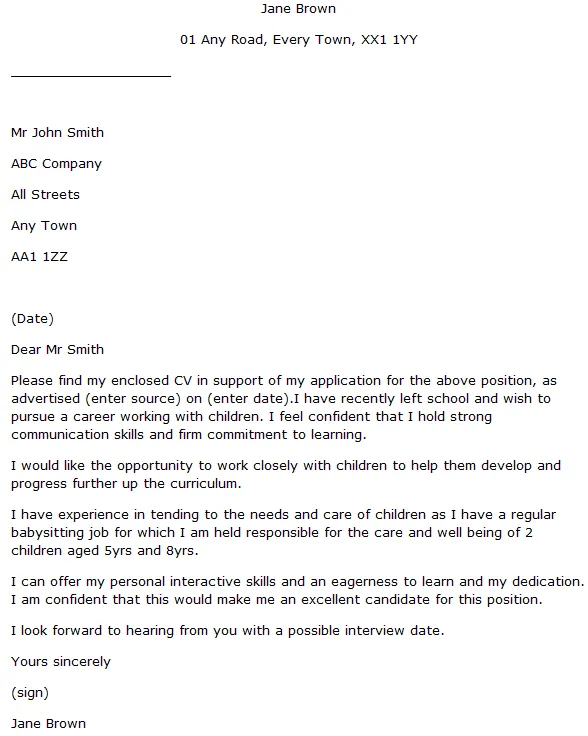Why a Strong RA Cover Letter Matters
Applying for a Resident Assistant (RA) position without prior experience might seem daunting, but a well-crafted cover letter can significantly increase your chances of success. Your cover letter is your first opportunity to introduce yourself to the selection committee and demonstrate why you’re the ideal candidate. It allows you to showcase your understanding of the RA role, highlight relevant skills (even if they weren’t acquired in a formal RA capacity), and express your enthusiasm for the position. A strong cover letter proves you’ve taken the time to understand the role, the university’s values, and how you can contribute to the residential community. It’s your chance to make a memorable first impression and set yourself apart from other applicants. By emphasizing your strengths and addressing any potential gaps in your experience, you can convince the hiring team that you’re a valuable asset.
Crafting a Compelling Cover Letter
The key to a compelling cover letter lies in its ability to grab the reader’s attention and keep them engaged. Begin with a strong opening statement that immediately highlights your interest in the RA position and your understanding of the role’s responsibilities. Avoid generic introductions; instead, personalize your letter by mentioning specific aspects of the university or the residential community that resonate with you. The body of the letter should clearly articulate your relevant skills, experiences, and qualifications. Focus on demonstrating how your skills and experiences align with the specific requirements of the RA role, even if they come from non-traditional sources such as volunteer work, leadership roles in clubs, or part-time jobs. Remember to maintain a professional tone throughout the letter, using clear, concise language and avoiding jargon. The cover letter should be well-organized, easy to read, and free of grammatical errors, showcasing your attention to detail.
Highlighting Relevant Skills
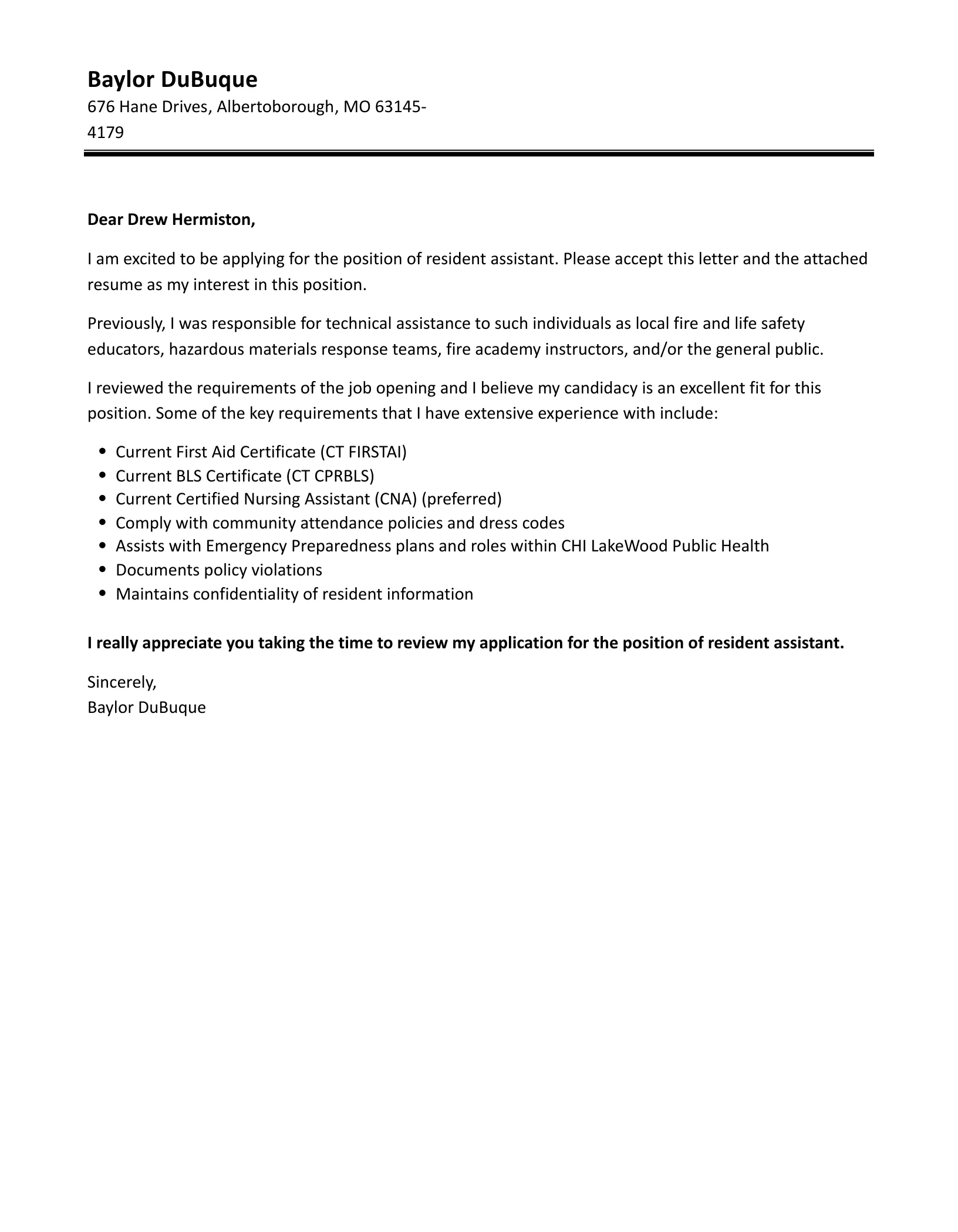
Even without direct RA experience, you likely possess a range of skills that are highly valued in this role. Focus on highlighting transferable skills – those skills that can be applied across different contexts. These might include communication, interpersonal skills, conflict resolution, leadership, time management, and problem-solving. Provide specific examples to illustrate how you’ve utilized these skills in the past. For instance, if you’ve been a member of a sports team, discuss how you’ve demonstrated teamwork, leadership, and the ability to resolve conflicts. If you’ve worked in customer service, highlight your communication skills and ability to handle difficult situations. Be sure to quantify your achievements whenever possible; for example, ‘Successfully mediated conflicts among team members, resulting in a 15% increase in team cohesion.’
Showcasing Your Personality and Enthusiasm
The RA role is about building community and supporting residents, so your personality and enthusiasm are critical. Let your genuine interest in helping others and creating a positive living environment shine through in your cover letter. Share specific examples of your experiences where you demonstrated empathy, initiative, and a commitment to fostering inclusivity. Describe your passion for the university and your desire to contribute to the residential community. Show that you’ve researched the RA role and are genuinely excited about the opportunity. You can include a brief anecdote or personal story that illustrates your commitment to serving others or your ability to connect with people from diverse backgrounds. This will help the hiring team get a sense of your personality and assess whether you’d be a good fit for the role.
Detailing Your Understanding of the RA Role
Demonstrate that you understand the responsibilities of an RA. Show that you’ve taken the time to research the role and the expectations associated with it. Briefly discuss key duties like enforcing community standards, mediating conflicts, organizing events, and providing support to residents. Highlight any relevant training or certifications you possess, such as first aid or CPR certifications. You can also express your understanding of the importance of creating a safe, inclusive, and supportive environment for all residents. Mention specific initiatives or programs you’d like to implement or support as an RA. This will show the selection committee that you’re not just looking for a job, but that you’re invested in the well-being of the residents and the overall success of the residential community.
Top 5 Tips to Craft Your RA Cover Letter
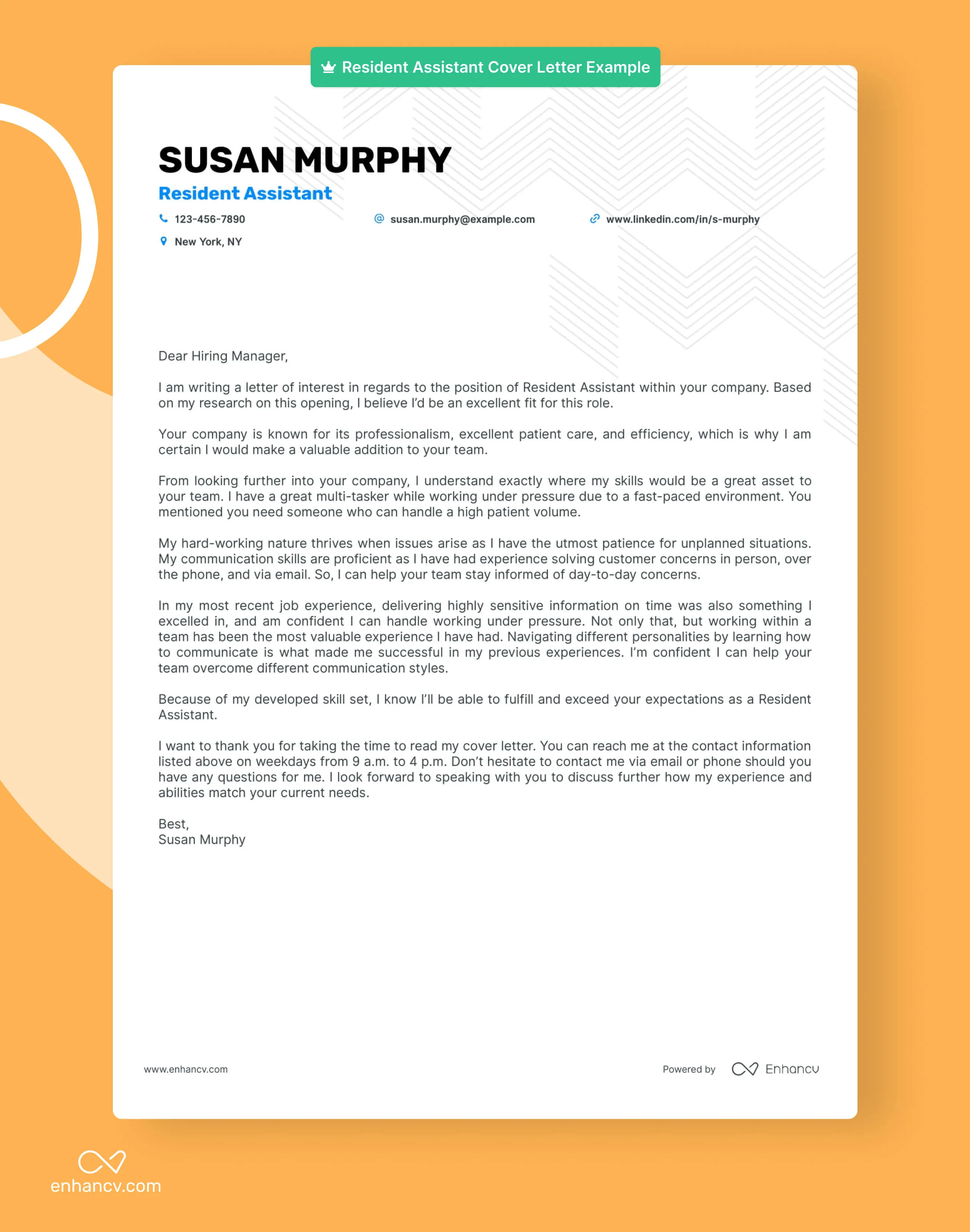
Tip 1 Emphasize Transferable Skills
As mentioned previously, focus on skills you’ve developed in other roles or experiences. These skills, such as communication, leadership, problem-solving, and conflict resolution, are highly valuable in an RA position. Provide specific examples to show how you’ve used these skills effectively in the past. This demonstrates your ability to adapt and succeed in different environments.
Tip 2 Showcase Your Knowledge of the University
Research the university’s values, mission, and residential community. Mentioning specific programs, initiatives, or events that resonate with you shows that you’re genuinely interested in the university and the RA position. This demonstrates that you’ve put in the effort to learn about the role and the environment in which you’ll be working.
Tip 3 Demonstrate Your Problem-Solving Abilities
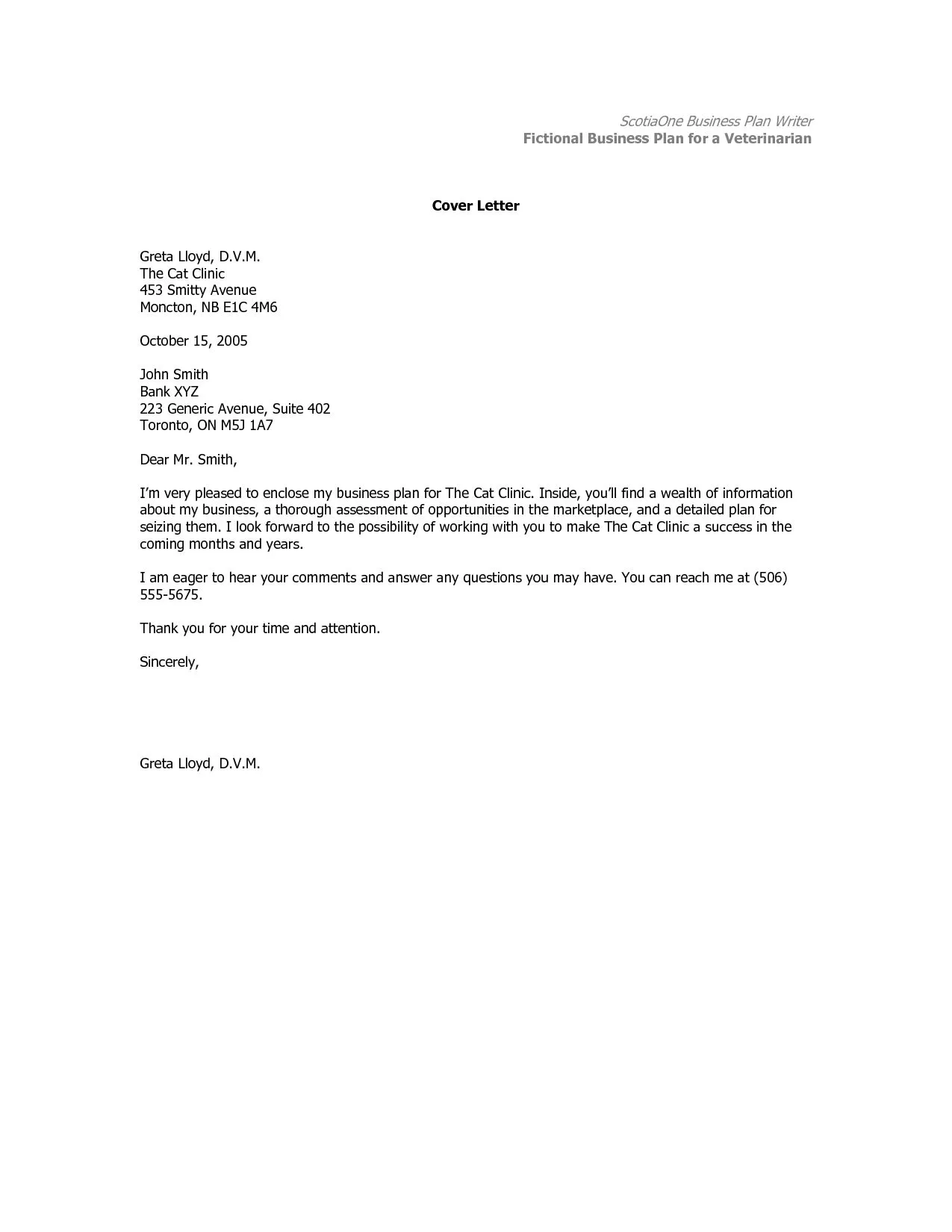
RAs often face challenges and need to resolve conflicts. Provide examples of situations where you’ve demonstrated your ability to think critically, identify problems, and develop effective solutions. Highlight your problem-solving skills and conflict resolution abilities. These are crucial attributes for an RA, as they’re responsible for managing conflicts and supporting residents facing various issues.
Tip 4 Highlight Your Communication Skills
Effective communication is essential for an RA. Showcase your ability to communicate clearly, concisely, and empathetically. Highlight your listening skills and your ability to build rapport with others. Demonstrate your proficiency in various communication methods, such as verbal, written, and non-verbal communication. Providing examples of successful communication in the past is crucial.
Tip 5 Proofread and Tailor Your Letter
Before submitting your cover letter, carefully proofread it for any grammatical errors, typos, or inconsistencies. Ensure the letter is tailored to the specific RA position and the university’s requirements. Avoid using generic language and make sure your letter reflects your personality and enthusiasm. Take the time to review and revise your letter to ensure it is polished and professional, which will make a positive impression on the hiring team.
Addressing the Letter
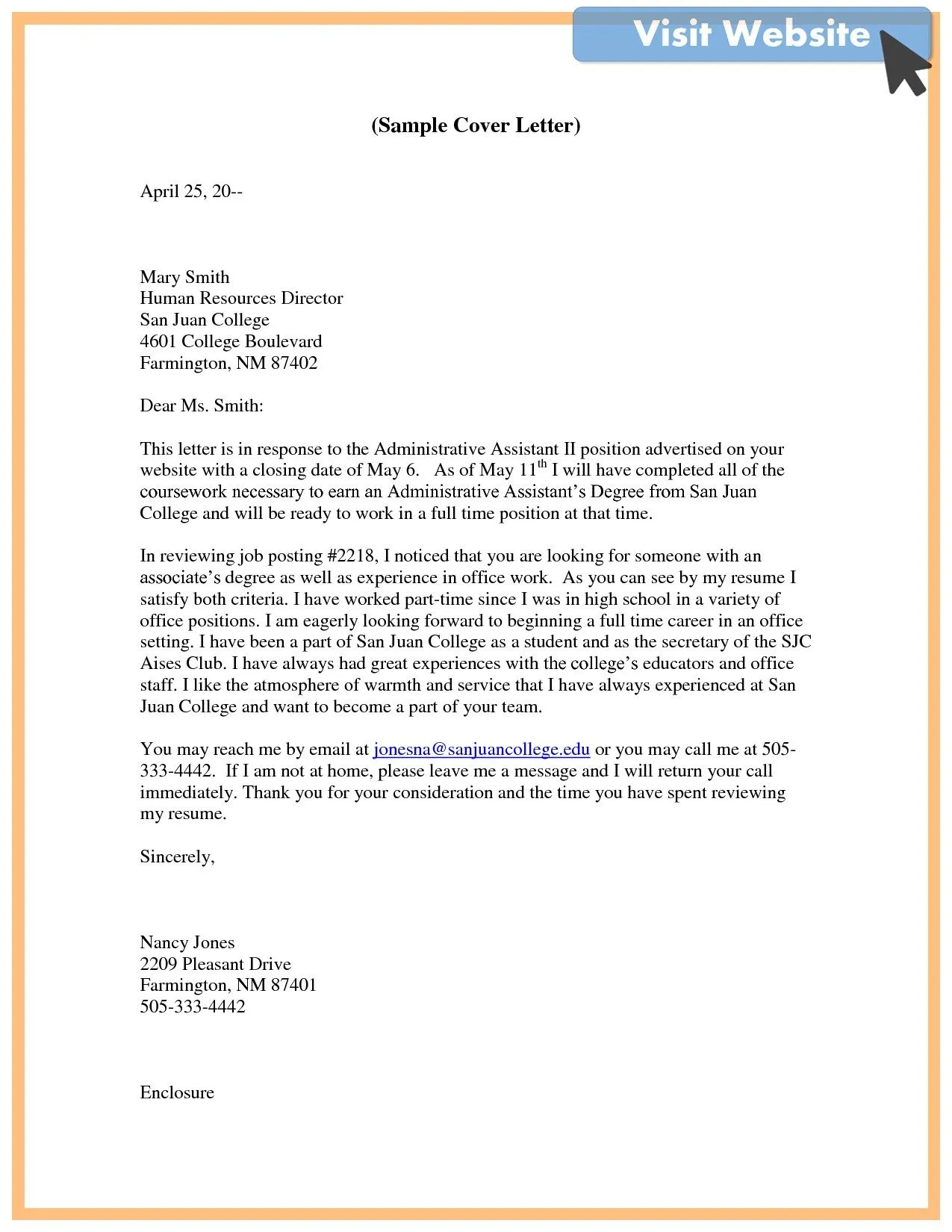
Always address your cover letter to a specific person, if possible. Research the name of the hiring manager or the person responsible for reviewing applications. If you can’t find a specific name, use a professional salutation like ‘Dear Resident Assistant Selection Committee.’ Avoid using generic greetings like ‘To Whom It May Concern,’ as this can make your letter seem less personal. Addressing the letter to a specific individual shows that you have taken the time to learn about the hiring process.
Formatting Your Cover Letter
Formatting is key to make a cover letter easy to read. Use a professional font (e.g., Times New Roman, Arial, Calibri) and a standard font size (11 or 12 points). Maintain consistent margins and spacing throughout the letter. Use clear headings and subheadings to organize your content and guide the reader. Break up large blocks of text into shorter paragraphs to improve readability. Ensure your letter is visually appealing and easy to navigate. Formatting your letter well shows you pay attention to detail.
Closing Your Cover Letter Effectively
End your cover letter with a strong closing statement that reiterates your interest in the position and your eagerness to contribute to the residential community. Thank the reader for their time and consideration. Include a call to action, such as expressing your availability for an interview or mentioning that you look forward to hearing from them soon. Ensure your closing is polite, professional, and reflects your enthusiasm for the RA position. This will leave a lasting positive impression.
